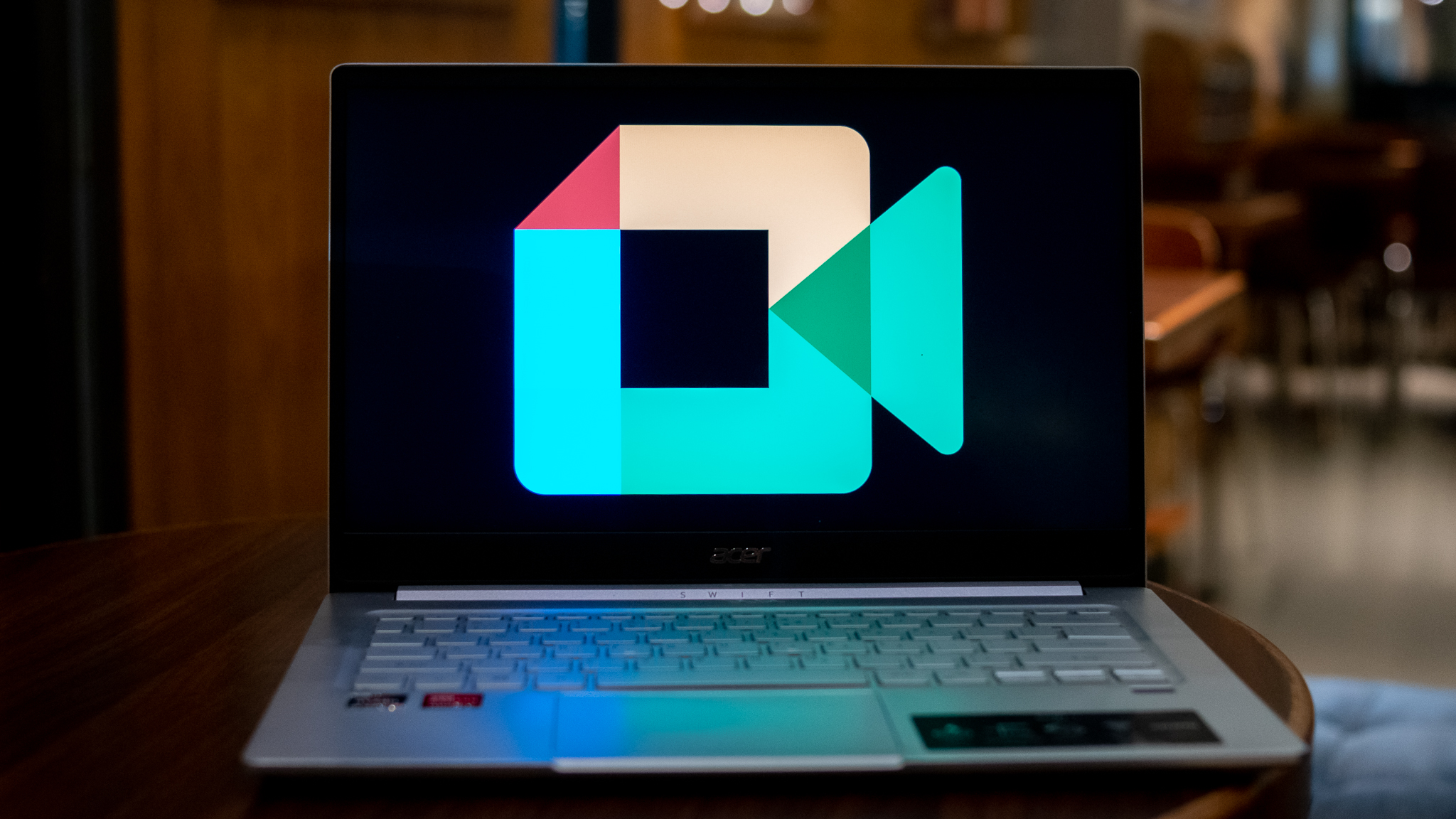Everything we hope to see at Google's Pixel 7 event
Everyone knows the Pixel 7 Pro and Pixel Watch will appear, but Google needs more than hardware to succeed.
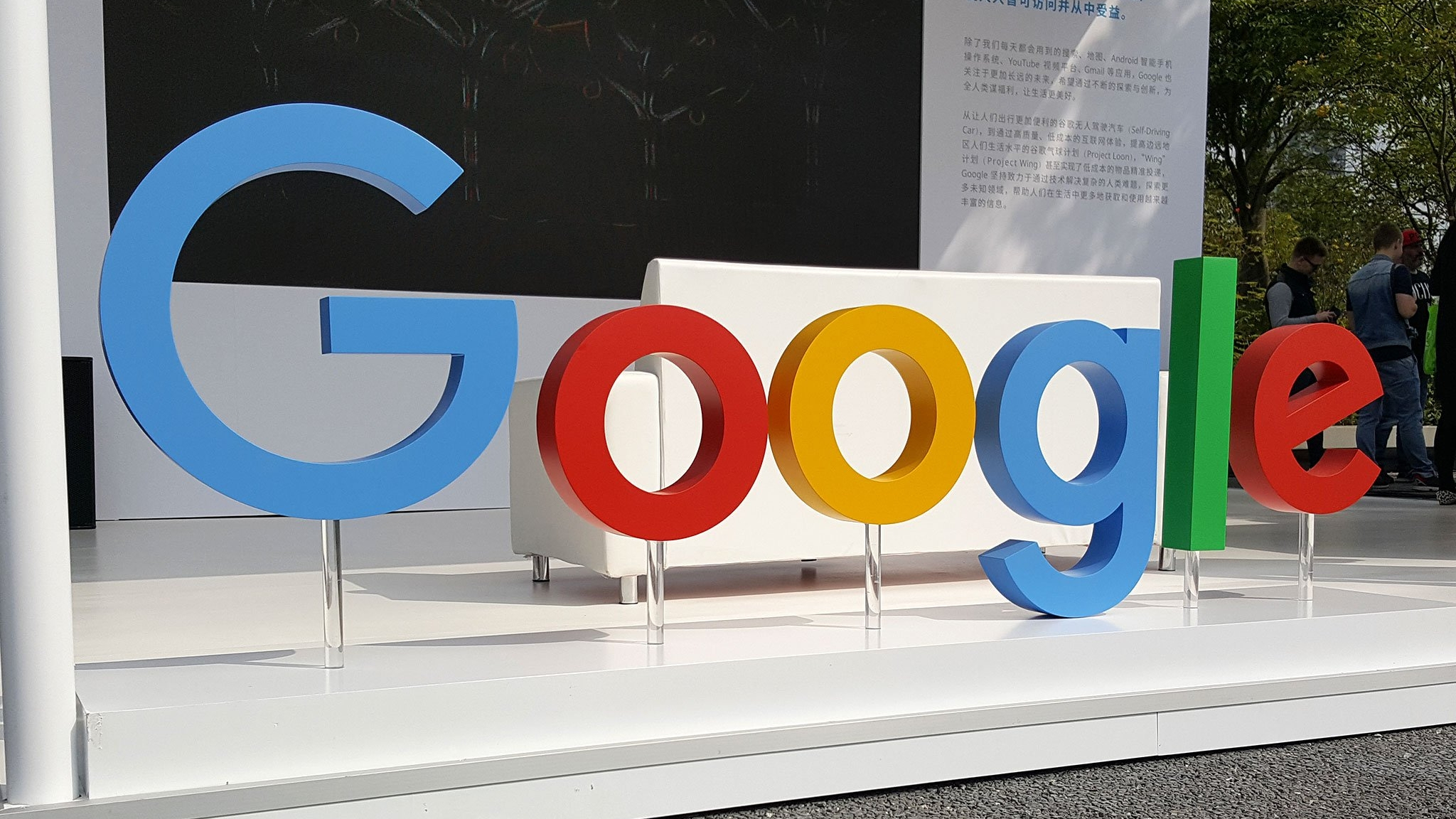
We've literally known for months that Google would reveal the Pixel 7, Pixel 7 Pro, and Pixel Watch "this fall," and thanks to leaks, we know what kind of hardware and specs to expect at the upcoming Pixel Event on October 6 at 10 am ET (thanks for making your fellow West Coasters wake up early, Google team).
So far, the Pixel 7 and 7 Pro look remarkably similar to their predecessors in design and cameras, so we expect that the new Tensor 2.0 chip, aka Cloudripper, will take center stage with new software improvements.
As for the Pixel Watch, we've heard plenty of rumors about the Pixel Watch's possible years-old processor, powerful memory, and Material You-style UI; and athletes will be curious how the Watch's announced Fitbit integration will work. But there are still plenty of questions left about the watch and how it'll compare to the Galaxy Watch 5 and Apple Watch Series 8 in terms of price and features.
Despite everything we know (or think we know), we still have a ton of questions and hopes about what Google will announce at the event, beyond the obvious Pixel 7 specs and Pixel Watch integration. I polled the Android Central staff for our biggest hopes and longshots for the Pixel Event, and these are the highlights.
An actually-exciting Pixel Tablet reveal
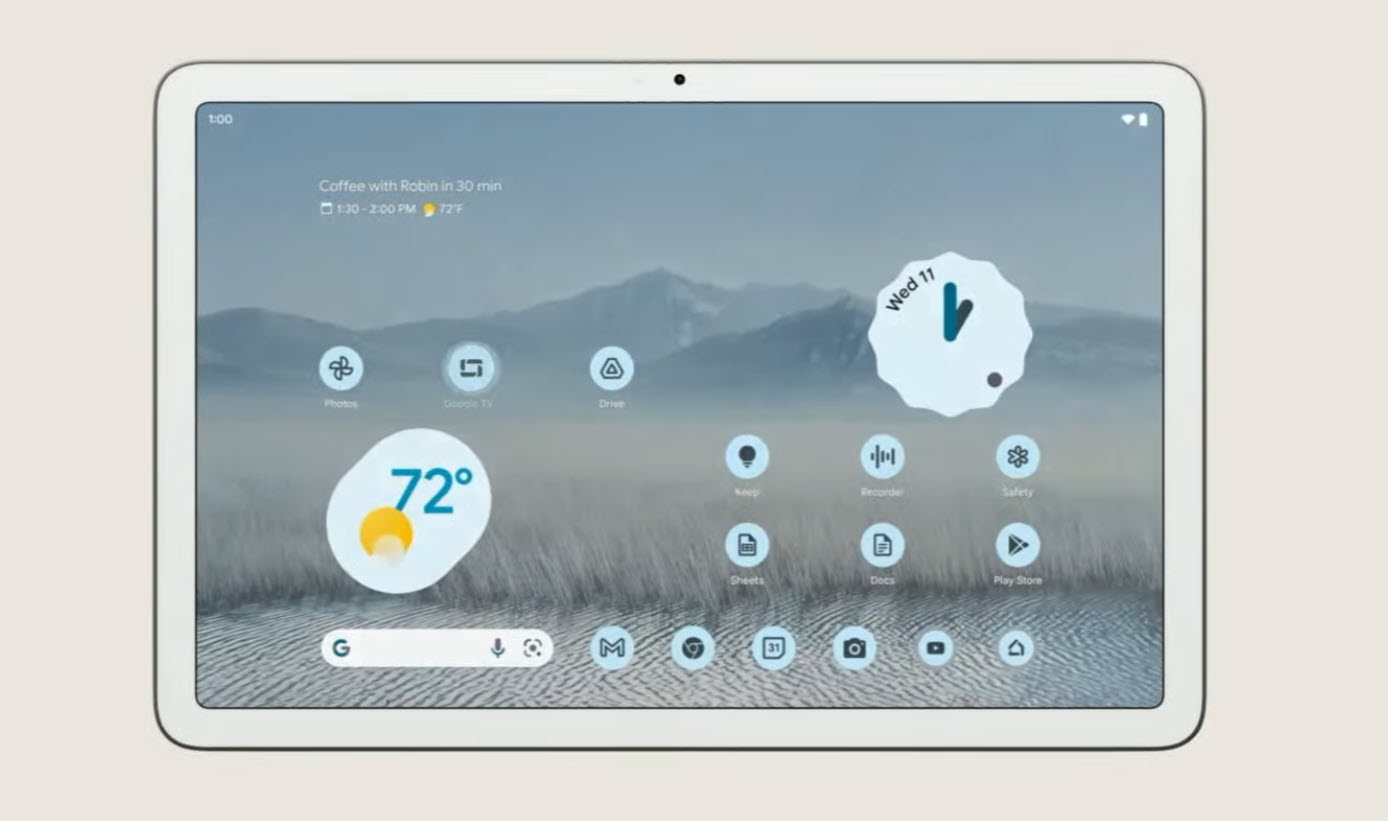
Probably the most-forgotten announcement of Google I/O was the Pixel Tablet, due to come out sometime in early 2023. You might have actively blocked it out of your mind because it looked aggressively boring in its reveal, with budget-sized bezels and a generic Android interface.
Since then, leakers revealed it would likely be 11 inches and use the same Google Tensor chip as the Pixel 6 series — not the newer Cloudripper chip.
Our former Executive Editor Alex Dobie speculated at the time that Google might have designed it as a portable Nest tablet designed more for smart home control than traditional tablet use. And our Senior Editor for all things tablets, Andrew Myrick, got excited that it would complete the Pixel ecosystem so Google's hardware could better compete with Apple's and Samsung's.
Get the latest news from Android Central, your trusted companion in the world of Android
Whatever Google's plan, it needs to justify why it looks so much worse than a Galaxy Tab S8 and explain why people should buy one when Samsung offers DeX mode and Apple's Stage Manager brings its own desktop-lite UI to iPads. Android 13 has useful multitasking tools for larger screens built-in, but that's not enough to make people buy a tablet when they can just buy an Amazon Fire HD for a lot cheaper.
Flashy Fitbit features and sensors
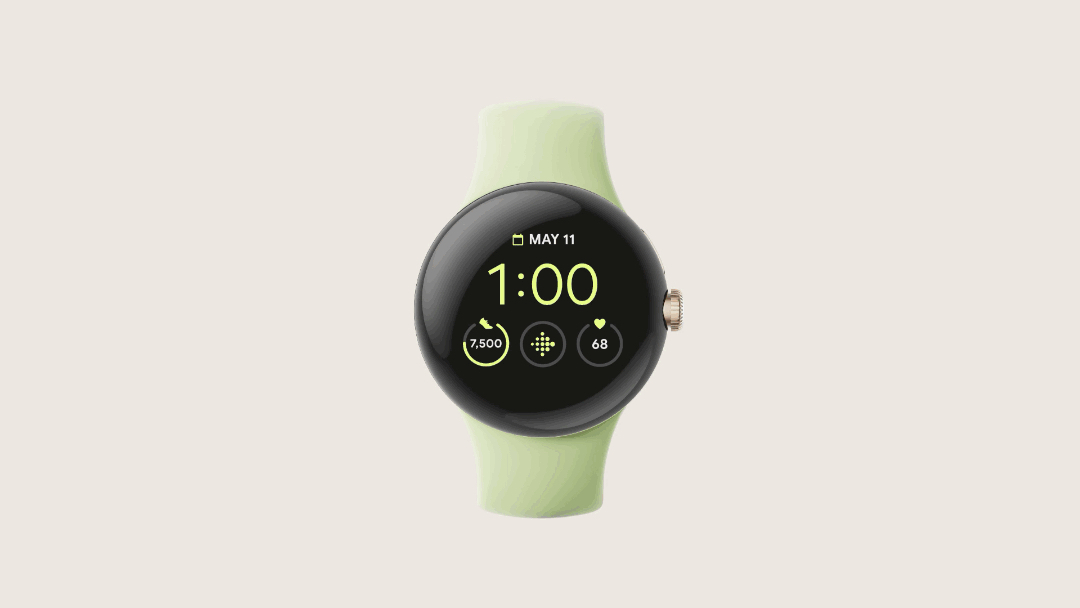
My Apple-hating colleagues would probably fight me on this, but Apple's ads about its Watch saving people's lives and signaling for help using satellites are heavy-handed but darn effective. And Samsung's sensor-packed Galaxy Watches have only one true rival for quantity of health data: the Google-owned Fitbit Sense 2. Google needs to respond to its rivals in kind and emphasize how it'll track health and fitness beyond the norm.
I've already written about Fitbit features I want on the Pixel Watch, starting with "all the health sensors it can fit." Samsung took this approach, but its temperature sensor is still inactive, its blood pressure tracking geo-locked, and some sensors like ECG are exclusive to Samsung phones. If Google can provide a similar suite that's phone-agnostic and all functional at launch, thanks to Fitbit's expertise, that'll look great for a first-gen device.
I'm worried, though, because one of the only Pixel Watch specs that hasn't leaked is its sensors, which could mean it'll only track unexceptional data like heart rate and blood oxygen. At the very least, Google should mention if it can track data like heart rate variance for stress tracking or irregular heartbeats (AFib) to tap into that health-scare crowd.
Google will very likely require a Fitbit Premium subscription to access detailed health reports. Apple and Samsung don't charge customers, but they also don't compile and process data in the same way. If Google can turn this weakness into a strength during the presentation, it'll pay dividends in consumer interest.
Talk about Wear OS as a whole
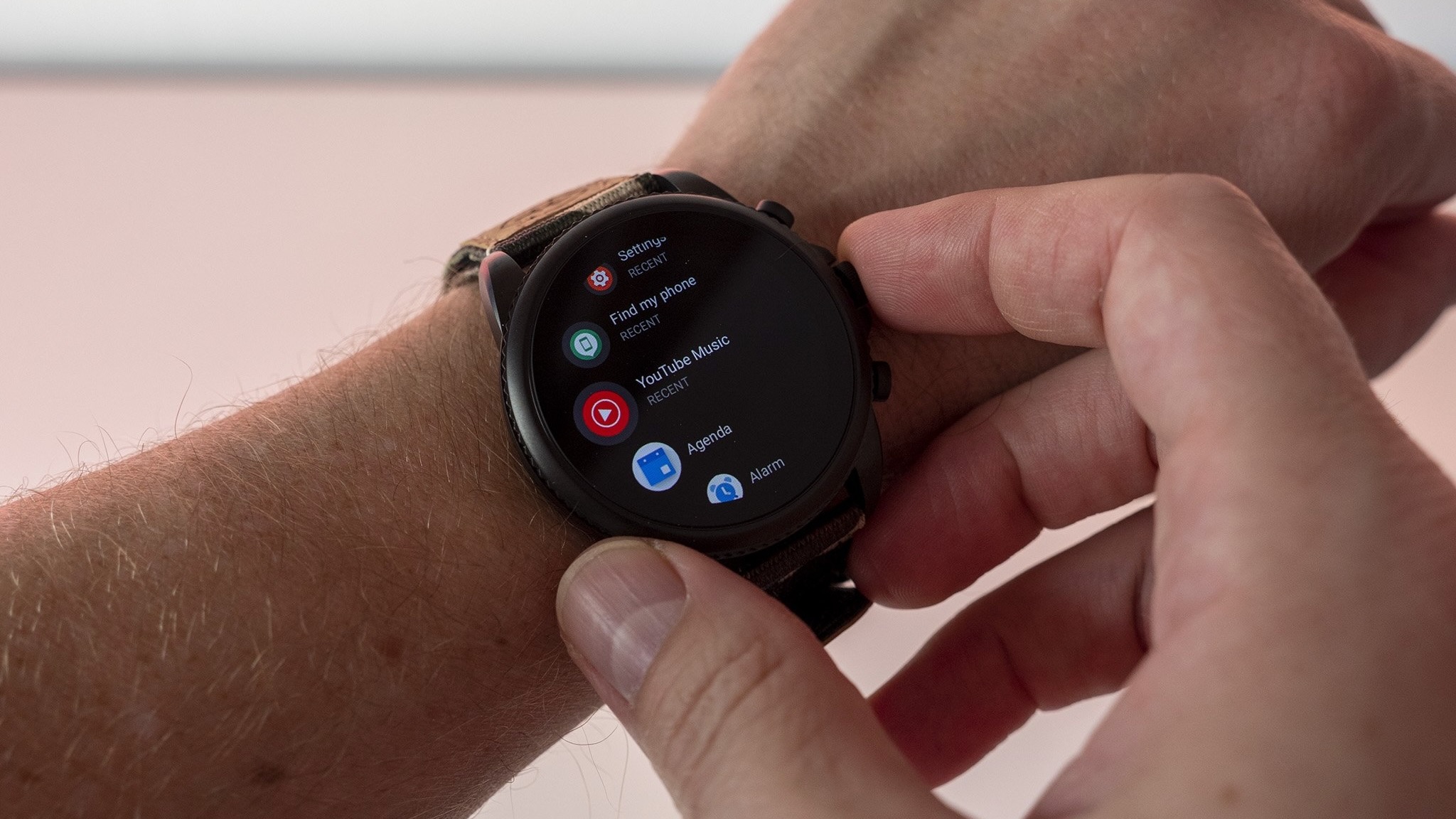
It doesn't take a tech expert to predict Google will talk up the Pixel Watch's UI and phone connectivity as a way to sell Android users on the watch. But in a dream world, Google will also take the time to address the massive and expanding Wear OS 3 elephant in the room.
In May 2021, Google promised that a bunch of Wear OS watches from Fossil and Mobvoi would update to the new OS sometime from mid-2022 onwards. But in the 16 months since, only Samsung's Galaxy Watches and the $1,300 Montblanc Summit 3 have received the new OS.
One theory is that Google might have held back Wear OS 3 so that the Pixel Watch would be the first mainstream device to offer the stock experience (minus Samsung's One UI Watch spin). Or else it's been a difficult UI to adapt to older Wear OS watches on Snapdragon Wear hardware, for whatever reason.
But owners of watches like the TicWatch Pro 3 and Fossil Gen 6 are absolutely owed a specific timeline for when they'll get the update themselves after this unexpectedly long wait. Otherwise, Google will be shooting itself in the foot with the customers that stuck with Wear OS during its down years or who bought these watches since then under the assumption they'd get proper support "soon."
This is about more than just the Pixel Watch; it's about convincing people that Google will pay attention to Wear OS the same way it does with Android OS. Apple can push a new watchOS every year to its own devices, but Google will have a harder time releasing consistent Wear OS builds across Snapdragon and Exynos chips. Ideally, it'll promise yearly open-source updates that other manufacturers can quickly adapt and put our minds at ease.
Improve on the best cameras in the biz
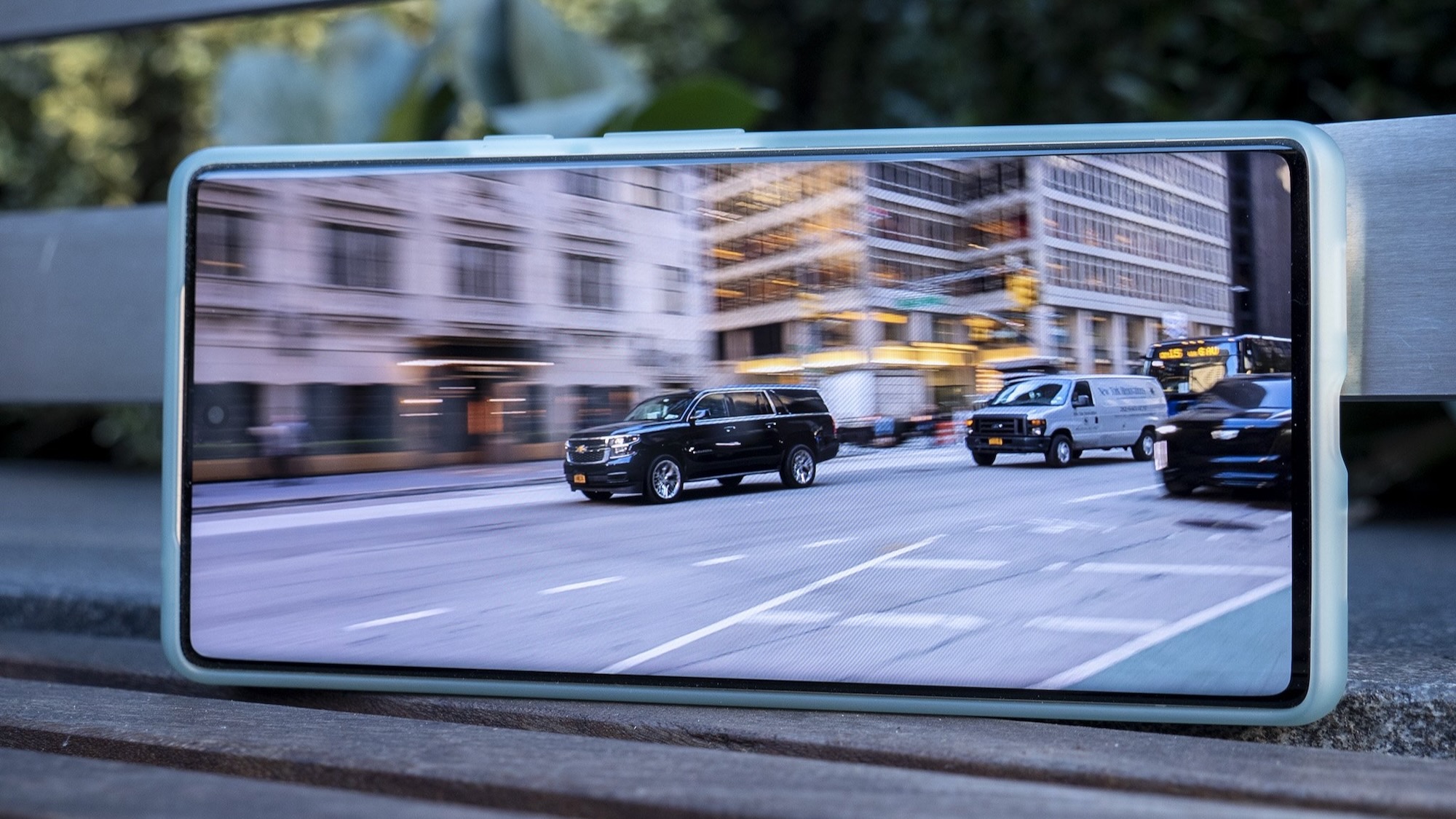
The Pixel 6 Pro takes fantastic shots thanks to its solid camera sensors backed by Google Tensor smarts. Last year, features like Magic Eraser, Real Tone, and Face Unblur wowed us on stage and then wowed us in our camera tests.
This year, all the leaks suggest Google will rely on similar camera hardware as the last generation, but that's not an issue if the company can promise meaningful software improvements.
Our Pixel 6 Pro reviewer says that the phone can struggle with video quality in low light and that zooming in and out "isn't as smooth as you'll find on a Samsung phone or an iPhone." Nor does it zoom in as well as you'll find on the Galaxy S22 Ultra. Apple's iPhone 14 series made low-light photos a priority; maybe Google can, too, with the Pixel 7.
Basically, so long as Google doubles down on AI tricks, both for camera quality and other tools, it'll be just what the release needs.
Charm us with Cloudripper
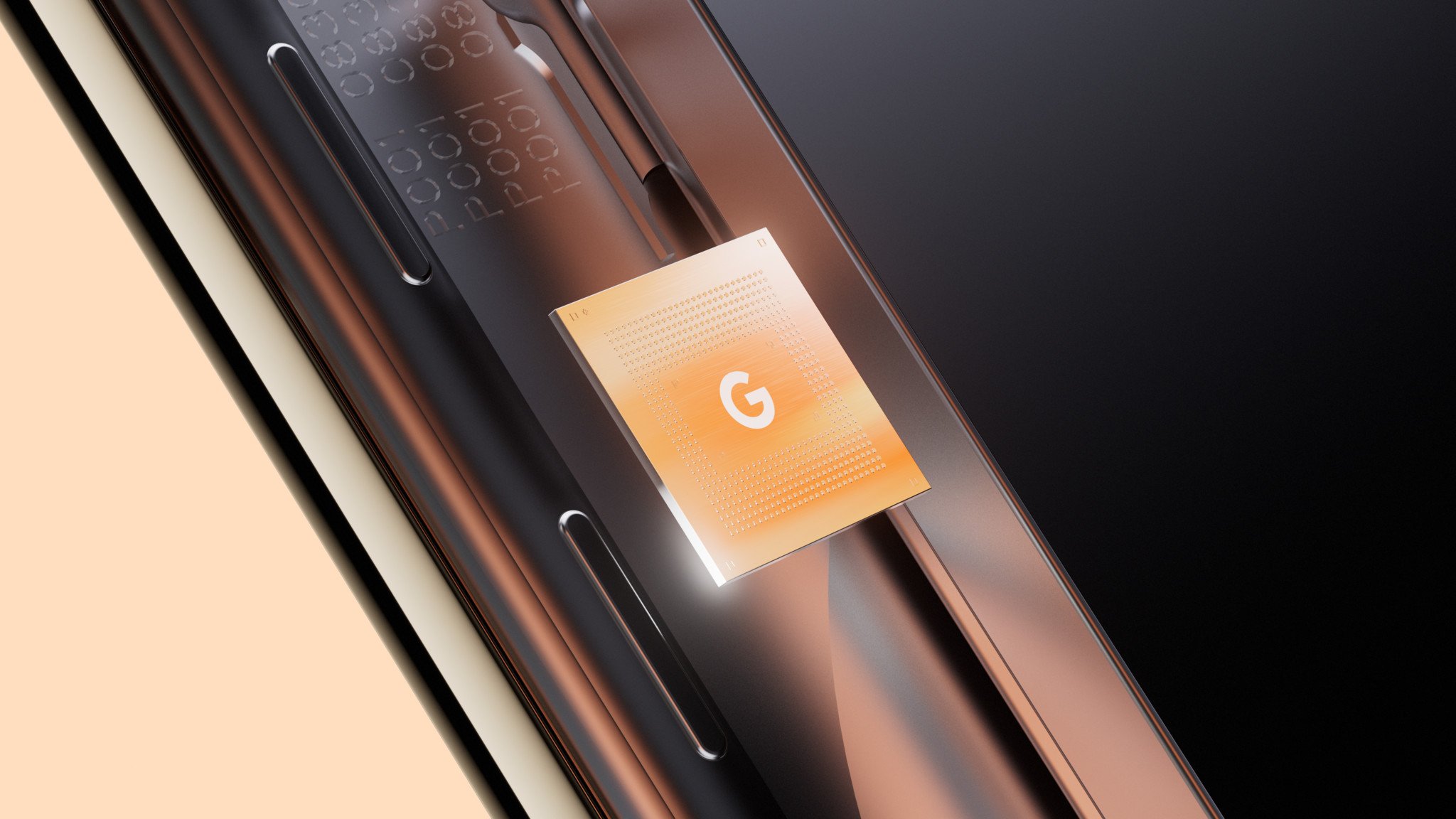
Several Pixel 7 phone prototypes have leaked into the world, and one early owner discovered that the new chip would use the same 2+2+4 core design as Google Tensor, with two performance cores, two mid-cores, and four Cortex-A55 low-power cores.
Tensor outperformed its specs somewhat thanks to AI, but in raw benchmarks, it still fell behind most Snapdragon 888 phones last year. Now, Google has to contend with the excellent Snapdragon 8+ Gen 1 that powers the blazingly fast Z Fold/Flip 4 phones, plus the new Snapdragon 8 Gen 2 launching in November with a supposedly "ultra-high frequency" for GPU performance.
We want Google to play to its strengths with whatever new AI tools it's cooked up, but we also want reassurance that the Pixel 7 has kept pace with other Android phones for basic performance. Hopefully, Google delivers that with its Cloudripper reveal.
Demonstrate a fingerprint sensor fix
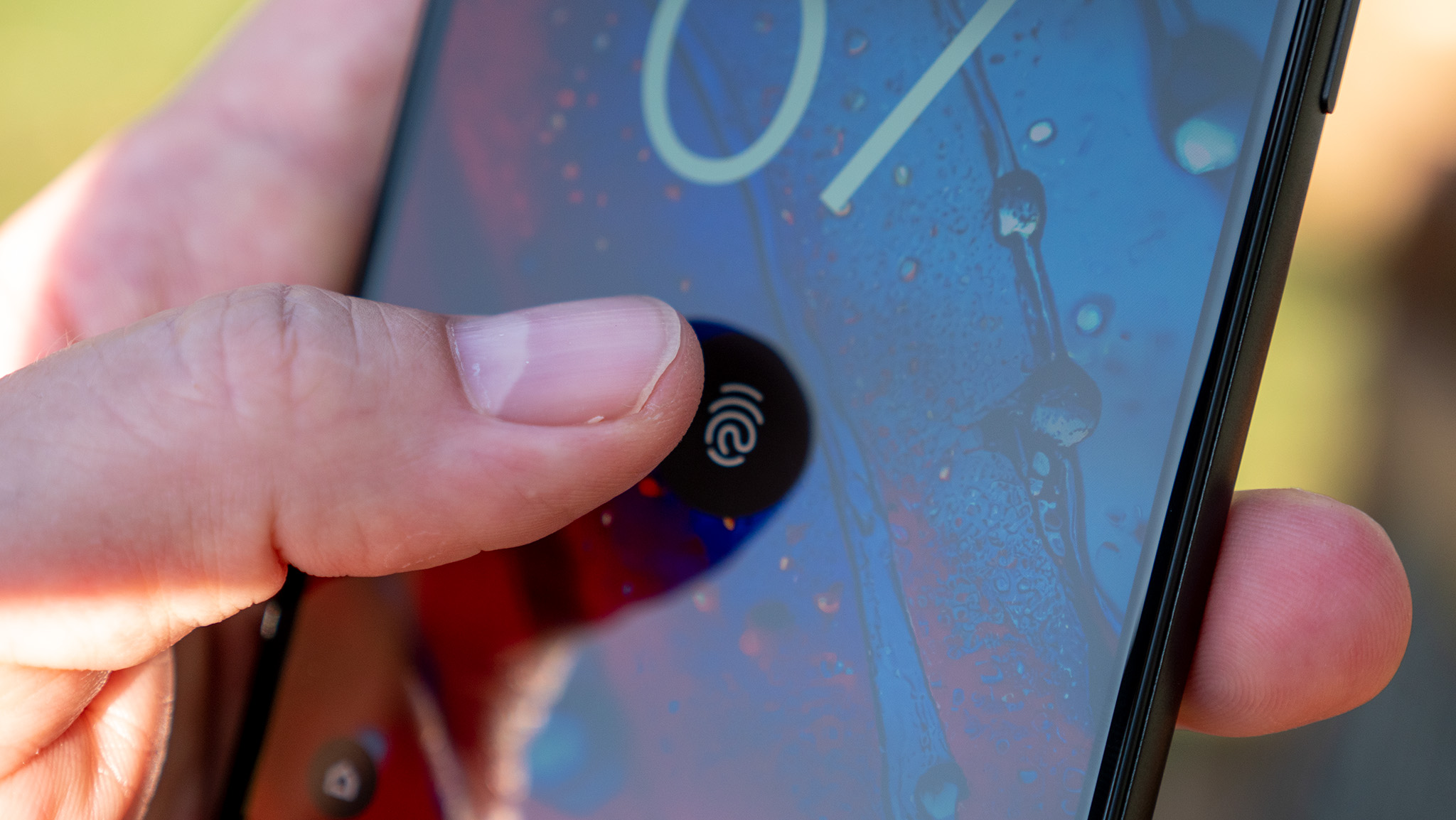
Fair or not, the Pixel 6 got a bad reputation for fingerprint sensor issues that took months to resolve. Then the excellent Pixel 6a arrived, bolstered by Google's promise that it had made the 6a sensor much faster — only for buyers to discover almost anyone could unlock the 6a regardless of their fingerprint, something Google didn't resolve until its mid-September update. That's one way to speed up a login!
I have low hopes of this happening, but I would love it if Rick Osterloh or another engineer openly acknowledged the controversy during the livestream. They should give a technical breakdown of how Google ensured its fingerprint sensor is more secure than ever and won't need a patch to work properly. Because it's become clear we can't just take the company's press releases at face value about these persistent security issues.
Show off improved Pixel 7 official cases
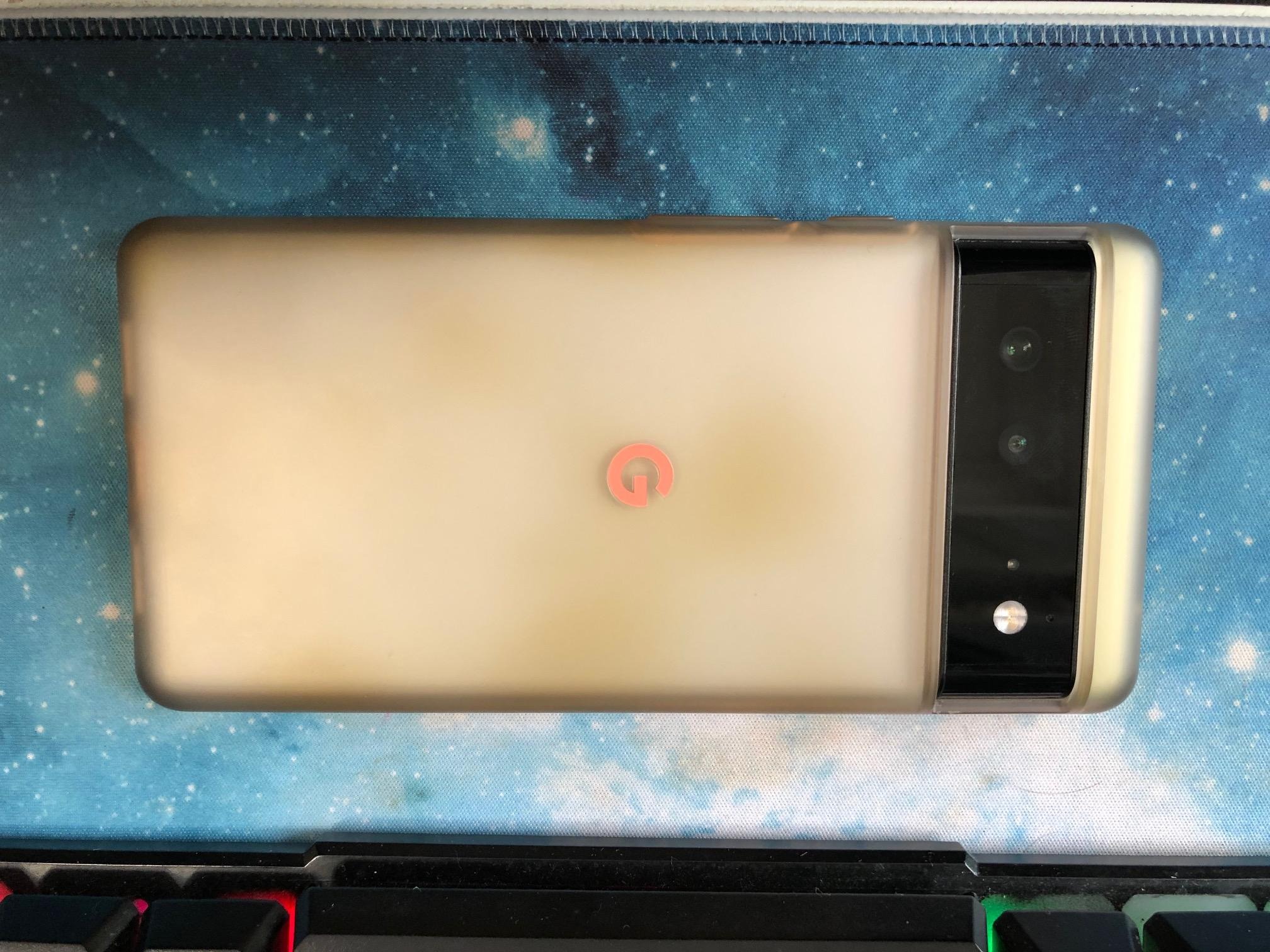
Phone cases aren't exactly a sexy topic for a reveal livestream, but again, Google should throw a bone to loyal Pixel fans who were burned by subpar Pixel 6 cases.
Back in May, a wave of complaints arose that official Pixel 6 cases from Google were turning yellow (see above) or warping around the buttons after just a couple months of use. And in some instances, the cases had warped inside the packaging and wouldn't fit the Pixel 6 out of the box.
People pay extra for first-party cases expecting longevity, not the opposite. If Google can just throw some new cases on the big screen promising the best materials yet, that would go a long way in making up for last year.
Cool Pixel Watch bands
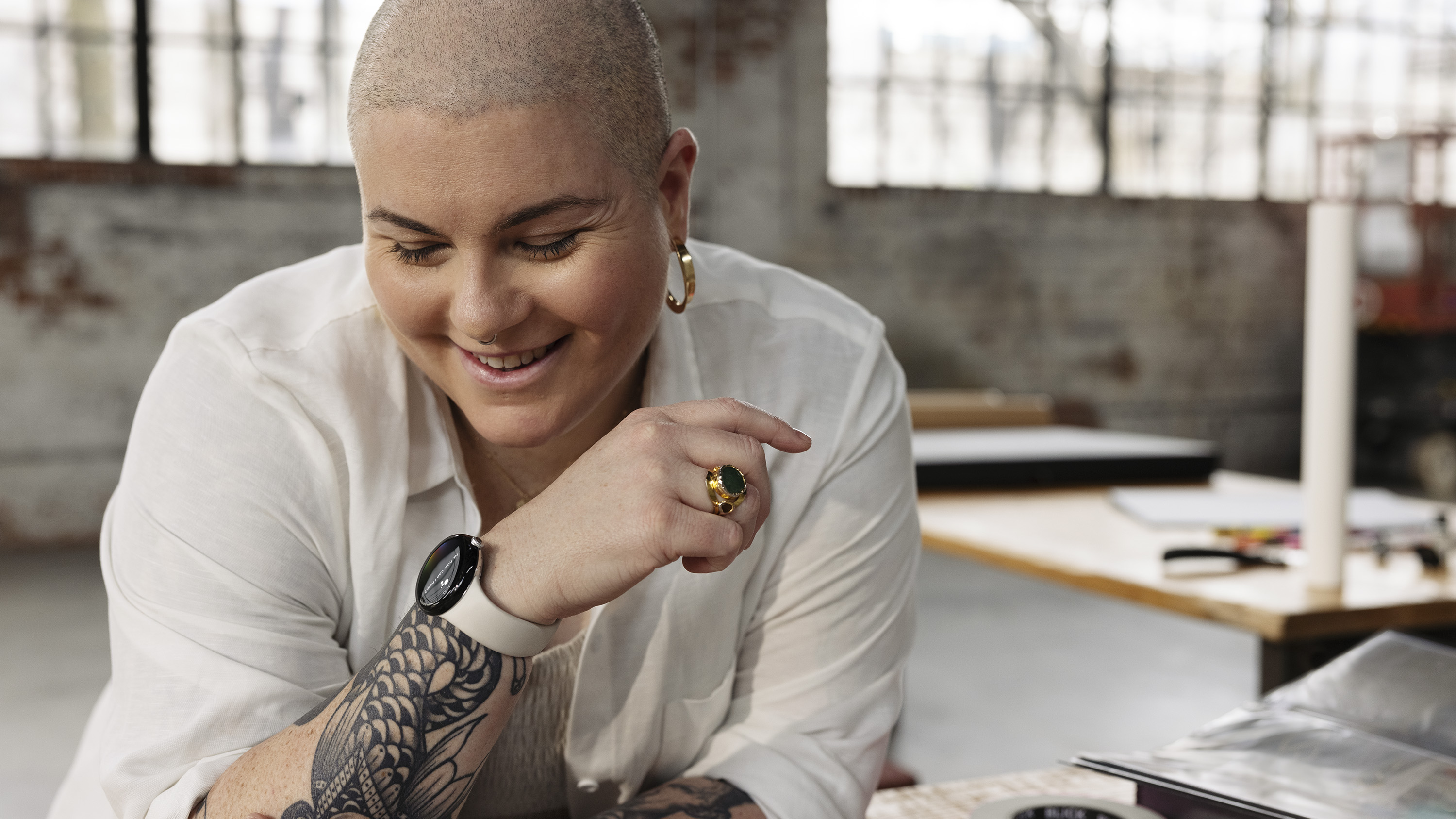
Smartwatches are as much a status symbol as a productivity tool. Apple has done an excellent job giving the Apple Watch series a ton of watch band options, including steel, nylon, leather, silicon, braided, and so on, not to mention the different types like Milanese loops or more sporty attachments. Whichever you pick reflects your personality.
The Pixel Watch, like Fitbit devices, will only accept proprietary bands, meaning you can't use your old bands from other brands. So hopefully, it'll show a variety of band material options, not just a few different tropical silicone colors.
Google will likely do its Google thing and discuss esoteric AI tricks and watch-phone connectivity ad nauseum to convince hardcore Android fans how useful it is. But it shouldn't neglect how important it is that the Pixel Watch arguably looks far prettier than the Galaxy Watch 5, and it should lean into that by showing all the different band-case combos on offer — not just the sporty one.
An unlikely "One more thing..."
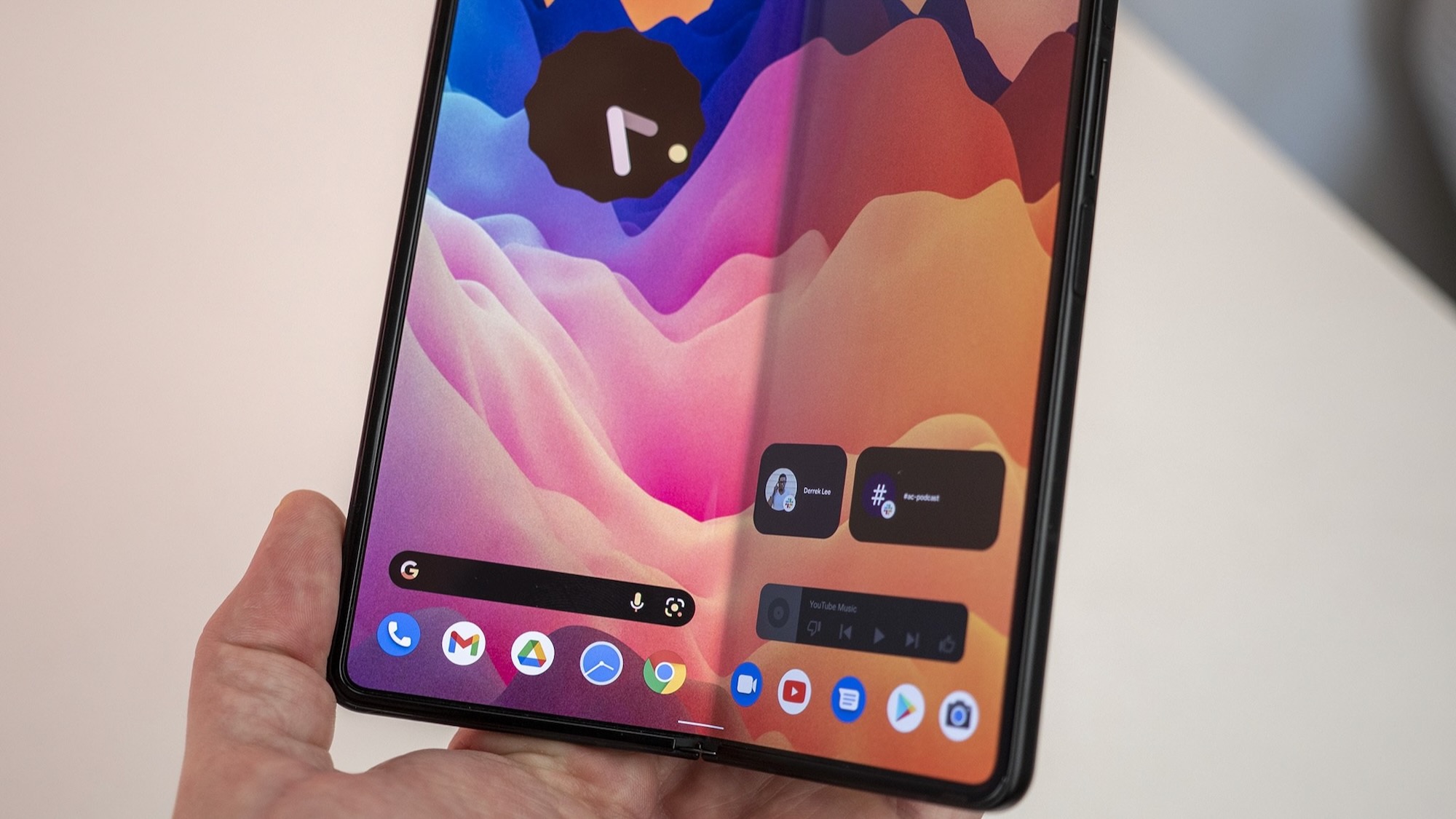
Since the October 6 lineup is so predictable, it'd be wonderful if Google surprised us with another long-rumored, oft-delayed Pixel device to accompany the Pixel Watch. But let's face it, the Pixel Notepad very likely won't launch until spring 2023 at the earliest, and Google won't want to overshadow its Pixel 7 series for a foldable that far out.
Similarly, we'd love any of the new Google Glass prototypes to show up, though it's even more unlikely. Google is publicly testing AR glasses that can live translate or throw up Google Maps directions in your field of view, but they don't seem anywhere close to consumer-ready. And its Project Iris AR/VR glasses are (A) supposedly targeting a 2024 release, and (B) reliant on the cloud, something that makes their future unlikely given Google will shut down Stadia before then.
Google even canceled its Pixelbook 2 plans (allegedly), so a Chrome OS appearance isn't in the cards.
So we probably won't see any unexpected hardware, but we can dream that Google has something else up its sleeve that it hasn't already kicked to the curb.
As you can probably tell, we have high hopes that Google will wow us this year with the Pixel 7 and Pixel Watch, but also some trepidation. In theory, the Pixel 7 Pro will challenge the best Android phones, while the Pixel Watch takes on the Galaxy Watch 5 for the crown of best Android smartwatch. But Google needs to prove it can earn those titles.
The Pixel 6 series significantly outperformed flagships of years past by making bold changes but also had persistent bugs. This year, it needs to convince us that the Pixel 7 will rise above last year's issues while also convincing us that its first-gen Pixel Watch will rise to the occasion.
We'll be watching closely during the event to see what Google brings to the stage. We will be live-blogging the event on Android Central this Thursday at 7 am PT / 10 am ET / 3 pm BT if you want to follow along!

Michael is Android Central's resident expert on wearables and fitness. Before joining Android Central, he freelanced for years at Techradar, Wareable, Windows Central, and Digital Trends. Channeling his love of running, he established himself as an expert on fitness watches, testing and reviewing models from Garmin, Fitbit, Samsung, Apple, COROS, Polar, Amazfit, Suunto, and more.
